Advertisement
Why One Lawyer Wants Elephants To Be Considered 'Persons'
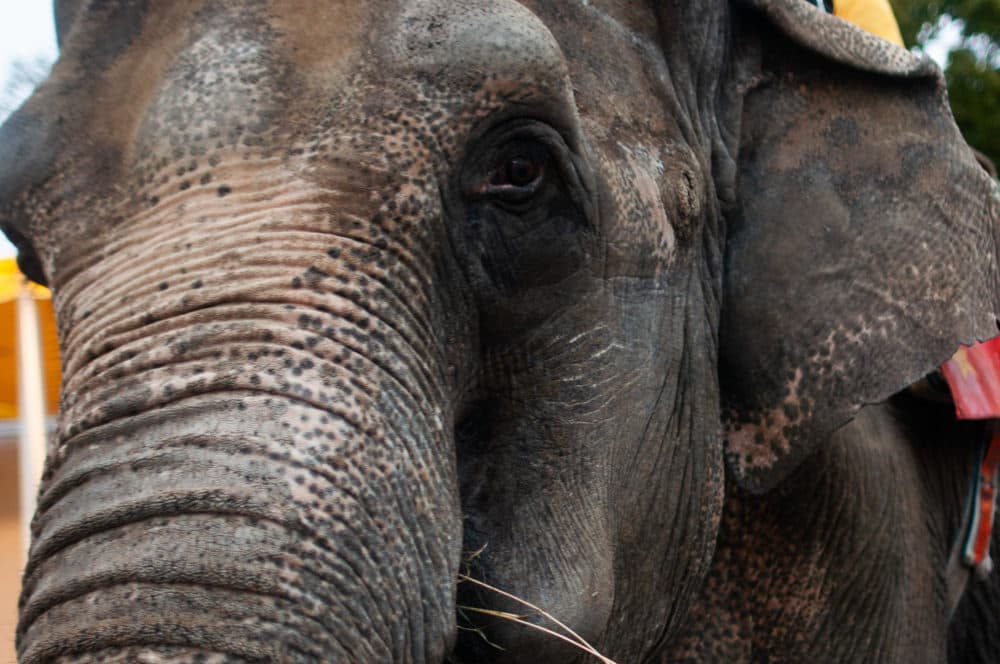
Gene Cassidy spends a lot of time talking about animals. As president and CEO of the Eastern States Exposition in West Springfield, his job is to promote the interests of New England farmers.
Cassidy performs his duty with such gusto that even when he’s talking about the controversial elephant rides at his two-week-long mega fair, he’s prone to making off-the-cuff comments about poultry.
“And what's the best, most efficient delivery system for protein to the human body?” Cassidy said, before providing his own answer: a chicken egg. “A gift from God. That is production livestock.”
Steven Wise also spends his time talking about animals, but he doesn’t view them the way Cassidy does.
Wise is a lawyer who argues that some species — because of their intelligence and self-awareness — should no longer be treated as human property.
“The idea that all non-human animals are things is something that's been around for 2,000 years,” Wise said. “It's kind of like wallpaper, that non-human animals are things, that they aren't entities who have any sort of legal rights.”
When it comes to animal welfare and animal rights, Cassidy and Wise don’t just disagree about which lane to drive in. They’re on completely separate highways.
And smack dab in the middle of both those highways stand three of the largest creatures on earth: elephants — two Asian and one African.
Their names are Beulah, Karen and Minnie. The oldest, Beulah, is almost 50. She arrived in the U.S. at age 2 on the last boat to transport wild-captured elephants into the country.
Wise and his organization, the Nonhuman Rights Project, want to send the elephants to a sanctuary in California. In order to do so, they would need to take the elephants from their legal owner, Tim Commerford, who’s based in Goshen, Connecticut.
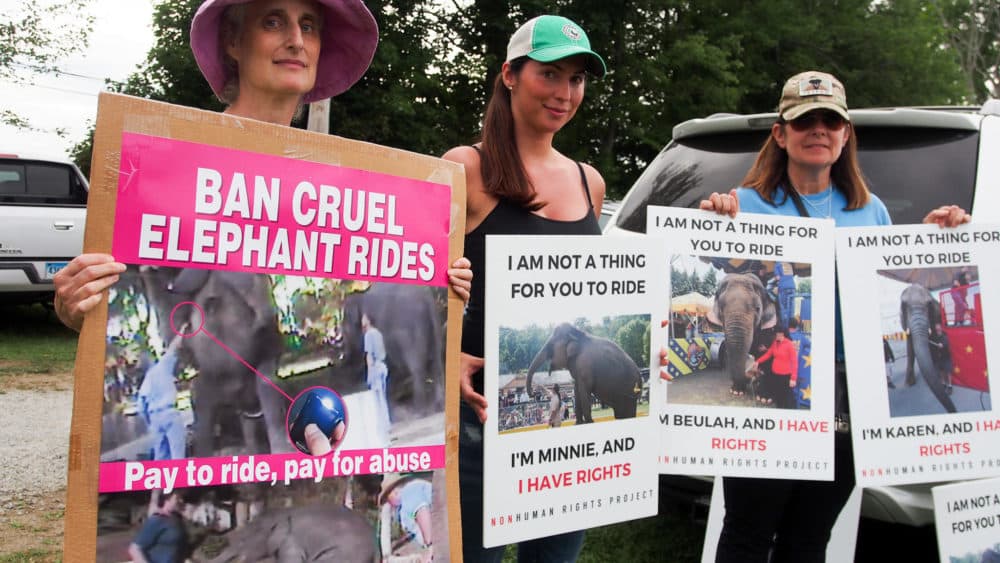
“Not happening,” Commerford said. “They’re not going anywhere. They are my elephants. They’ve been in my family for 46, and 45, and 33 years. Ain’t happening. No way. That would be like giving your child up. That’s pathetic. Ain’t happening.”
Commerford is used to protesters. They follow him to expositions and fairs across the Northeast, complaining about mistreatment of his many exotic animals, and citing the numerous USDA infractions he’s received, including a recent one about the unhealthy state of Beulah’s hooves.
But Wise isn’t asking for better conditions for the elephants. He’s filed petitions in Connecticut seeking writs of habeas corpus for Beulah, Karen and Minnie.
Wise also filed similar petitions in New York State on behalf of chimpanzees, and for an elephant at the Bronx Zoo.
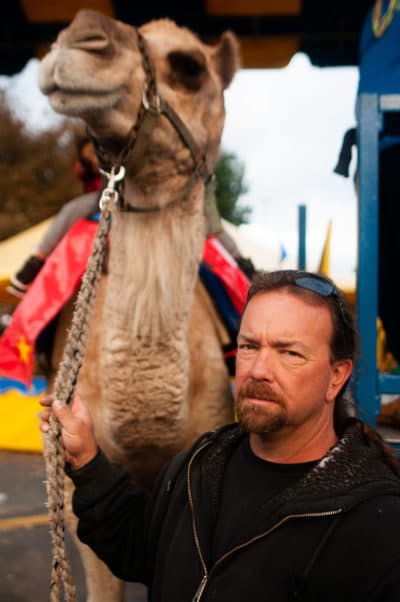
He wants them counted as “persons.” That’s a legal term that doesn’t apply solely to human beings.
If successful, the designation would fundamentally change the animals’ status under the law.
Wise has spent more than 30 years building a legal campaign, which he modeled after an 18th-century case that made slavery illegal in England.
“Tim Commerford is a slave owner,” Wise said. “The slaves simply are not human slaves, they're non-human slaves. They're both legal things, and as far as the law is concerned, they are treated the exact same way.”
During a quick break from tending his camels at the Big E, Commerford commented on Wise’s allegations.
“Slavery, I mean, geez. I mean, that’s ludicrous,” Commerford said. “The whole point with him is, he’s running around on people’s donations, just having a hoo-ha.”
Commerford also commented on Wise’s other habeas corpus petitions.
“He’s failing,” Commerford said. “He fails with the chimps, he fails with it all.”
Technically, Wise is failing. No judge has yet granted habeas rights to any of the animals Wise claims to represent.
Last year in Connecticut, Wise’s first petition on behalf of the three elephants was dismissed. In legal terms, the judge deemed it “frivolous.”
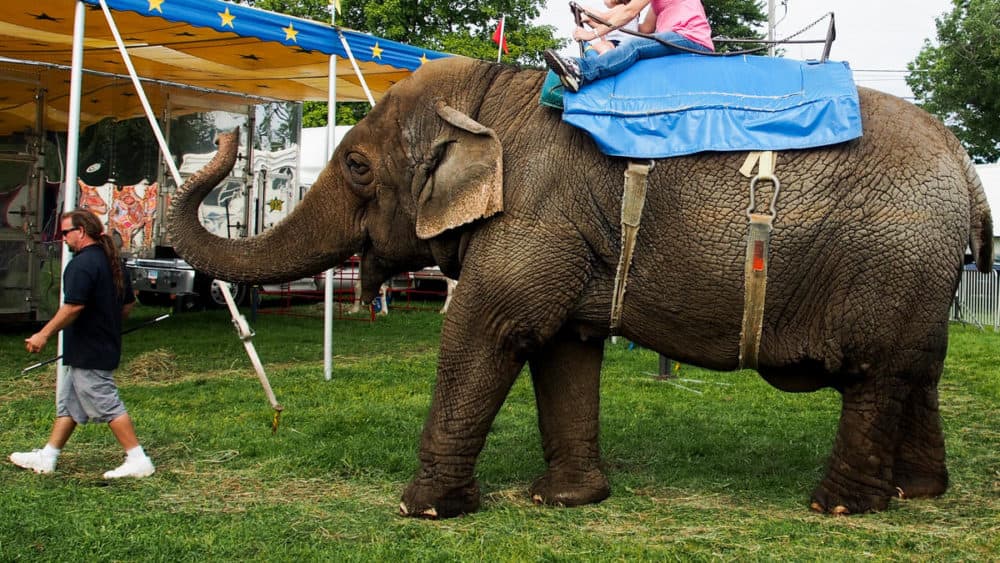
The Nonhuman Rights Project appealed the ruling. Wise said the petition isn’t frivolous; it’s “novel,” noting a recent legal opinion to prove his point.
In a case involving two chimpanzees, New York Court of Appeals Judge Eugene Fahey wrote that Wise’s petition presented “a deep dilemma of ethics and policy that demands our attention.”
"He made it clear that a chimpanzee is likely a person, meaning an entity who has the capacity for rights,” Wise said. "And [Fahey] said the way the court should determine what rights a non-human animal should have depends upon who that species is, and what their characteristics are — which is exactly what we have been arguing now for several years."
Back at the Big E last September, the tension was ramping up.
A video of a Commerford employee roughly handling a camel went viral. Over 120,000 people signed an online petition to ban wild animal acts at the Big E.
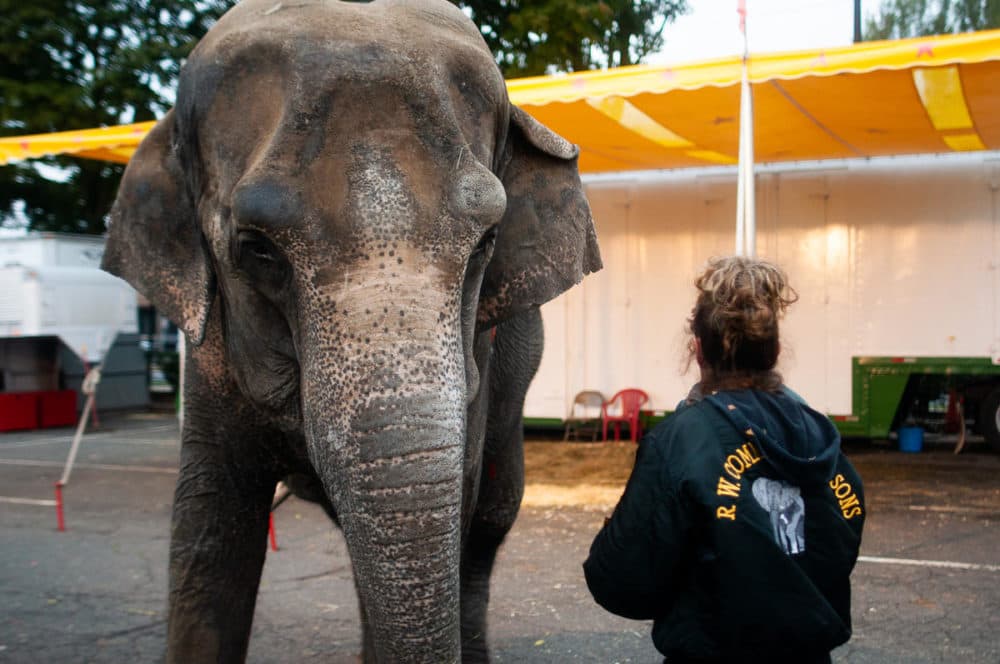
The fair itself was crowded on a Friday night, but things were pretty quiet over at the elephant rides. Minnie, a 45-year-old Asian elephant, was munching some hay. According to USDA documents, Minnie has a history of injuring her handlers, but she seemed pretty subdued on this night.
A vendor rolled an orange across the pavement to Minnie. She picked it up with her trunk and placed it in her mouth.
A regular fair-goer named Kathy — she asked to use only her first name — stood with her young adult daughter and watched.
“We were just remarking how it’s Friday night, and there’s absolutely nobody in line waiting to have elephant rides after all the stories and everything have hit the news," Kathy said.
Commerford denies business has taken a hit.
The Big E’s Cassidy said keeping elephants at the fair is essential to its identity, despite the protests.
“You know, it might be the elephants today,” Cassidy said, “but their stated agenda is everything that the Eastern States Exposition stands for. They will have another agenda after the elephant. And 20 years from now, or 30 years from now, that agenda might be the Holstein [cow].”
Wise and the Nonhuman Rights Project expect decisions from Connecticut judges in regard to Beulah, Karen and Minnie by early next year.
Wise said they’ll also seek habeas corpus for a captive orca whale in the near future.
This story was originally published by New England Public Radio.
This segment aired on November 22, 2018. The audio for this segment is not available.